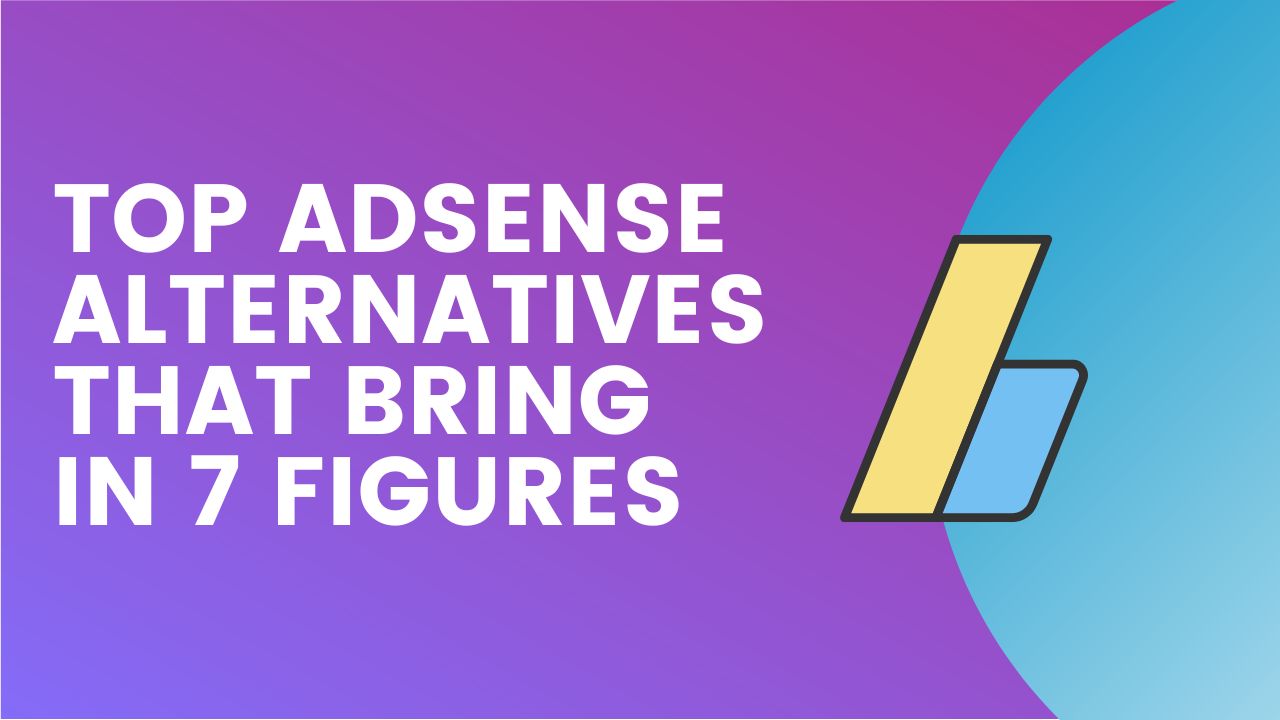
This post was most recently updated on January 3rd, 2025
If increasing ad revenue with Adsense alternatives is your goal, you’ve found the right resource. In this article, we outline options that can potentially boost earnings, offer more ad variety, and improve your control over ads. Find out which alternatives might be the best fit for your site as you navigate the evolving world of online advertising.
Websites that work best with Google AdSense are usually small, less tech-savvy websites that are looking for a fast easy way to monetize their content. Google AdSense provides these website owners with a simple and effective solution to earn revenue through online advertising.
It is particularly suitable for websites with lower traffic volumes, as it offers a straightforward way to display ads and generate income without requiring extensive technical knowledge. However, as a website’s traffic grows and surpasses 10,000 sessions per month, it may become more profitable for the website owner to explore AdSense alternatives like MonetizeMore, Raptive, etc.
Almost every successful publisher uses AdSense, or at least starts with it and progresses to Ad Exchange. However, what do you do when you can’t use the network to monetize your traffic?
Maybe you didn’t get approved for AdSense, or you’re busy appealing an account ban for invalid click activity, or you want to load up your ad stack to increase revenues. Whatever the reason, all is not lost. AdSense may be the market leader, but there are many competitors and Google AdSense alternatives that can provide good eCPMs and supplement ad revenue.
Below we break down facts about the above AdSense Alternatives in depth below:
As of now, there are several high-paying alternatives to Google AdSense that website publishers can consider to maximize their revenue potential. One such alternative is MonetizeMore, a Google-certified partner known for significantly boosting over 2500+ publishers’ earnings. By leveraging their AI-driven header Bidding technology, MonetizeMore connects publishers with major SSPs like Google AdX, OpenX, Amazon Publisher Services, and more. Publishers working with MonetizeMore typically experience a substantial increase in revenue, with some seeing a 50-300% uplift compared to AdSense.
MonetizeMore’s ad stack is packed with advanced features and capabilities designed to optimize revenue generation. From AI bidder optimization to dynamic floor pricing and smart refresh functionalities, MonetizeMore provides various ad formats that may not be available through AdSense. Publishers can benefit from inter-scroller ads, super adhesive ads, and interactive ad units for enhanced user engagement and revenue potential.
MonetizeMore’s approach differs from AdSense in that they tailor ad strategies based on the individual needs of each website, rather than applying a one-size-fits-all approach. This customized strategy, combined with a fully customizable ad stack, helps publishers achieve their revenue goals without compromising user experience.
They also offer additional tools such as Traffic Cop to block IVT and stop bad bots for good. Publishers across various verticals, from technology to travel and gaming to music, can benefit from MonetizeMore’s personalized approach to ad monetization, ensuring a balance between ad revenue optimization and a positive user experience.
10X your Ad Revenue with MonetizeMore here.
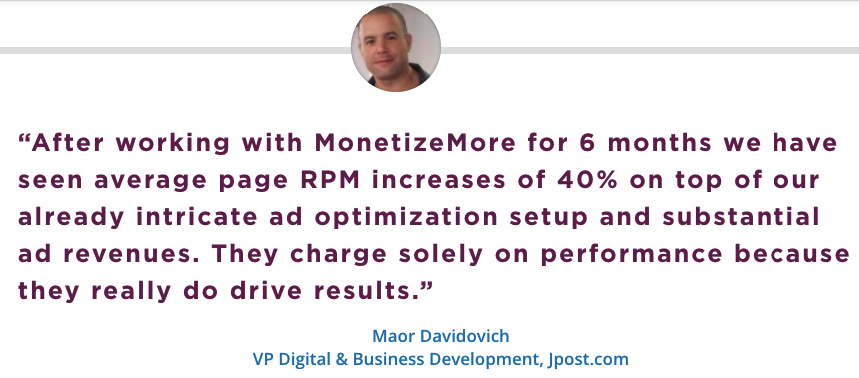
When determining whether AdSense or an alternative like MonetizeMore is a better fit for a website, several factors should be carefully considered. These include:
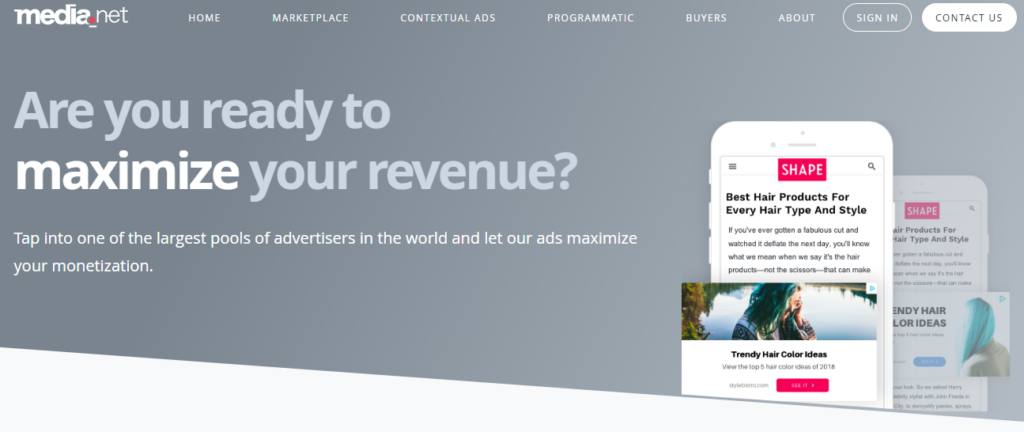
Media.net stands as a prominent player in contextual advertising, ranking as the world’s second-largest network in terms of revenue. It offers a unique edge by having exclusive access to Yahoo! and Bing search data, making it a solid competitor to Google’s AdSense.
Adding to its credibility, Media.net is the trusted choice for several major global brands. Its impressive clientele includes not only CNN, Forbes, and Reuters, but also other notable names like Esquire and USA Today. This widespread adoption by top-tier publishers highlights the company’s effectiveness in monetizing diverse content forms, ranging from news and editorials to more niche-specific articles.
AdSense, on the other hand, tends to show better results with banner ads placed above the fold, particularly in niches that are less focused on products. Conversely, Media.net shines in product-centric niches, leveraging its sophisticated algorithms to deliver highly relevant ads that align with the content’s context and user intent.
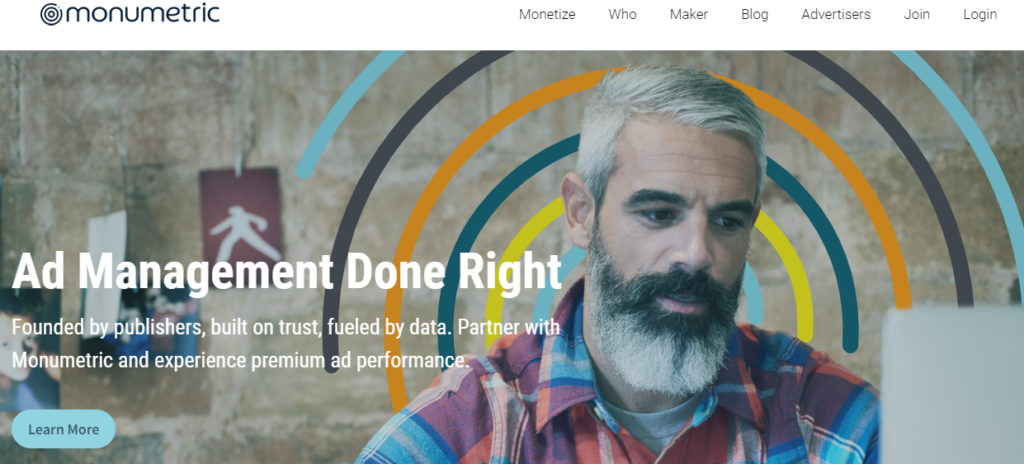
Monumetric presents a compelling case as a viable and potentially more profitable alternative to AdSense for bloggers. This platform offers a unique blend of technology and strategic support that caters to the diverse needs of publishers, aiming to optimize their ad revenue.
Its client-side header bidding wrapper and AdOps support help publishers make 25% more ad revenue compared to AdSense. By enables a real-time auction for each ad impression Monumetric ensure publishers get the best possible price for their ad space.
There are specific features associated with Monumetric.
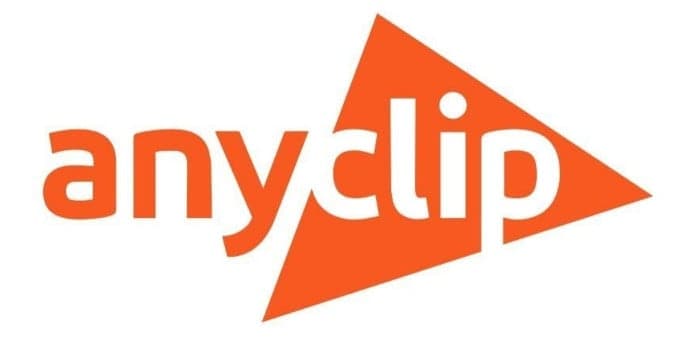
AnyClip’s Luminous X video player helps publishers access direct-sold video ads through an AI-powered video player. It also comes with advanced content targeting and brand safety filtering features.
The Luminous X player uses data to match video content within a publisher’s library with the content on publisher websites and while creating amazing experiences for users. If publishers don’t have enough video content to showcase, they can gain access to premium video feeds through AnyClip.
Click here to sign up for AnyClip.

Recrue Media’s publisher monetization services are managed by Jason Fairchild, the co-founder of OpenX. They offer three main services to publishers which include ad stack consulting, monetization partnerships, and inventory representation.
With ad stack consulting publishers get constant support from the Recrue Media team to optimize their ad stack across different ad types such as display, native, video, and more. With inventory representation, they ensure that publisher ad inventory gets full exposure to various exchanges and private marketplaces – all with the goal of increasing ad revenue.
Click here to find out more about Recrue Media.
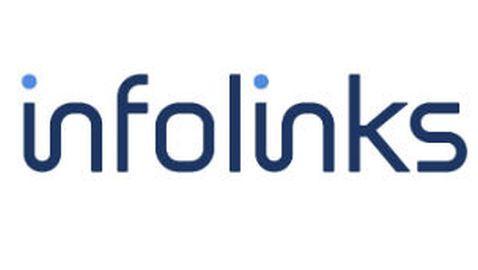
Infolinks stands out as a dynamic ad network, paralleling Google’s AdSense in its support for both publishers and advertisers. It tailors ads to individual user preferences, ensuring high relevance and engagement. Their unique approach, focusing on in-text ads that seamlessly integrate with long blog posts, alongside other formats like in-fold, in-tag, in-frame, and traditional graphic banners, caters to a diverse range of content styles.
What sets Infolinks apart is their Cost Per Click (CPC) model, designed to maximize earnings for publishers. While AdSense boasts a broader advertiser base and global reach, Infolinks’ focus primarily on North American markets sometimes translates into more effective, region-specific campaigns.
For publishers, partnering with Infolinks means retaining 65% of the revenue generated, a competitive share in today’s market. This partnership offers a lucrative opportunity for publishers looking to diversify their ad revenue streams and capitalize on Infolinks’ targeted advertising strengths.
Click here to sign up for Infolinks

With Viewdeos, you can access another lucrative segment of digital advertising, video advertising. Through the Viewdeos video ad network, you can gain access to premium video ad inventory. You can also create video inventory with your content and further increase engagement and page views from users.
Viewdeos also helps publishers increase their ad revenue by monitoring best performing ads and increasing engagement with better-targeted native video ads.
Click here to sign up for Viewdeos.
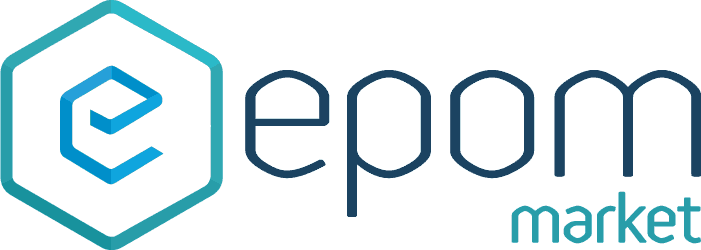
The Epom ad network helps a wide range of publishers monetize their traffic, whether websites or apps. They offer monetization options across a wide range of devices and ad formats.
Premium world-famous brands use Epom to advertise, which means that publishers get access to them. They also utilize algorithms that help maximize eCPMs for publishers to ensure that ad revenues are as high as possible.
You can also expect close to 100% ad fill rates and excellent monetization support.
Click here to sign up for Epom.
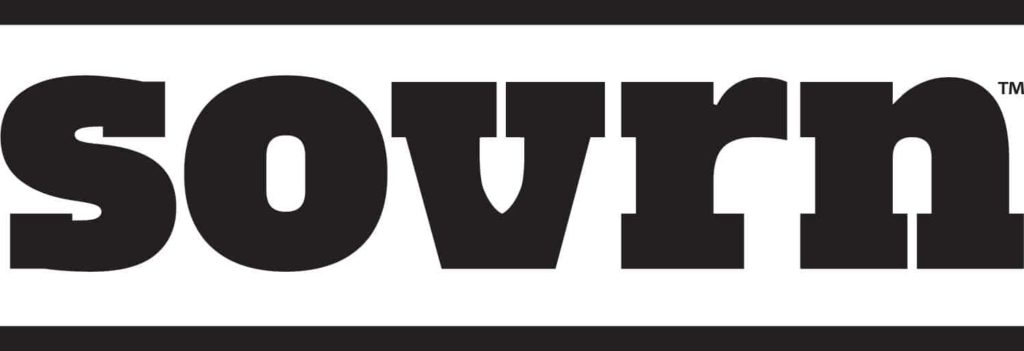
Sovrn presents a range of ad formats for content monetization, embracing both video ads and display ads. This platform also extends the capability for publishers to augment their income with affiliate links, presenting an excellent avenue to broaden their financial sources.
To effectively manage and enhance advertising campaigns, Sovrn offers an exhaustive reporting portal where publishers can follow up on earnings and ad metrics.
Sovrn is well-suited for established publishers looking to maximize their ad revenue. They work with top publishers globally, offer high-paying affiliates, and display ads. However, Sovrn has a strict approval process and requires high minimum traffic levels, making it challenging for average websites to meet their requirements. Overall, while Sovrn is an excellent choice for large publishers, smaller websites may struggle to qualify for their platform.
Learn more about Sovrn here.

Brightcom Media is committed to meeting all the publishers’ monetization needs. They advise publishers on inventory decisions, content optimization, and more to increase their ad revenue.
Publishers will get access to a multi-channel marketing platform where brand safety is vital. If you’re looking for reliable partnerships, trusted inventory, and programmatic solutions at a global scale, Brightcom is for you.
Additionally, they offer competitive CPMs at 100% fill rates, access to premium brands, a long list of ad units, and a dedicated account manager.
Click here to sign up to Brightcom Media.

Primis is another ad network that focuses on video ads and prides itself on delivering them to users at the right time. They focus on providing a great user experience and maximizing RPMs.
They utilize in-view native video ads that are fully customizable to fit any ad unit size while recommending additional videos to maximize distribution. Through contextual matching, artificial intelligence, and audience targeting, videos from the Primis video library are selected to deliver the most relevant video ads.
Click here to sign up for Primis.
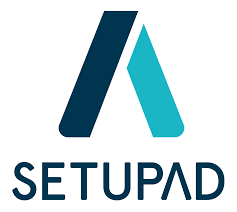
SetupAd offers header bidding technology and access to AdX, promising publishers revenue boosts compared to AdSense. While reporting can be not as granular than AdSense, they offer dedicated account managers and flexible payment options. Be aware that revenue gains may not be immediate and can depend on your website’s traffic patterns and niche – sites with high user engagement and traffic may fare better with their eCPM model than those heavily reliant on CPC (cost-per-click) networks like AdSense.
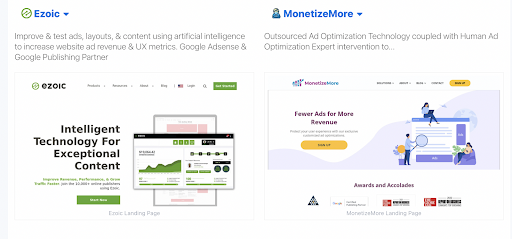
Ezoic is a popular AdSense alternative that uses artificial intelligence to optimize ad placements and delivery. They boast an average EPMV (earnings per mille views) of $3-$18, but approval requirements can be strict, and they take a cut of your ad revenue. Ezoic claims publishers usually see a 50% increase in revenue, and they showcase some case studies on their website. However, these are likely cherry-picked case studies. Publishers on forums report wildly varying RPMs on Ezoic. Some see significant increases, while others barely break even or even experience decreased revenue compared to AdSense.

Mediavine is a decent-paying AdSense alternative, but it has strict approval requirements. To be accepted, your website needs to have at least 50,000 monthly sessions and high-quality content. Once accepted, they report an average RPM (revenue per mille impressions) of $10-$50, but they do take a cut of your ad revenue.
The standard revenue share is 75% for the publisher and 25% for Mediavine. This applies to ads where Mediavine covers the cost of the ad server. Recently, 60 of Mediavine’s publisher’s sites had been de-indexed after the March 2024 Core Update by Google.
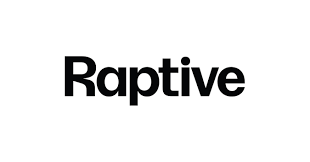
Raptive is a good option for publishers with niche content, especially in the tech, finance, and lifestyle verticals. They offer fill rates of over 90% and CPMs (cost per mille impressions) of $3-$10, but their approval requirements can be competitive. Raptive has strict approval requirements, including a minimum of 50,000 monthly sessions. While Raptive (formerly AdThrive) started out with a strong focus on the food blogging niche, they’ve expanded significantly to serve publishers in various verticals.
Connatix is a native advertising platform that focuses on in-feed ad placements. They offer competitive CPMs, but their approval process can be selective, and they may not be a good fit for all types of websites. The ad platform leans into its technological advantages like programmatic advertising, header bidding, and advanced optimization techniques, which benefit publishers regardless of their niche. Their approval process focuses on factors like traffic volume, content quality, and overall website health.
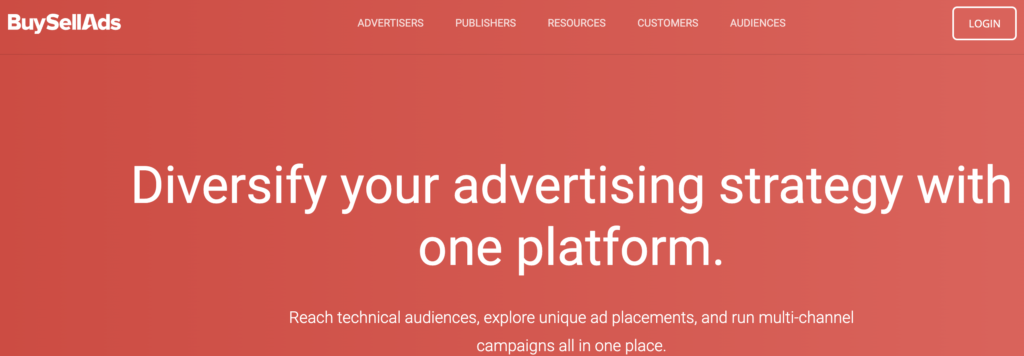
BuySellAds is a marketplace where publishers can sell ad space directly to advertisers. This gives you more control over pricing and the type of ads displayed on your site. RPMs and CPMs vary greatly on BuySellAds, as you set the price for your ad inventory. Your niche, traffic, and negotiation skills are major factors. Their direct deals with advertisers may provide opportunities for better-paying deals or collaborations, especially for niche sites.
The platform offers an array of ad formats including banners, text ads, native ads, as well as advertisements in RSS feeds and content sponsorship opportunities. Advertisers have the advantage of selecting from these varied options to connect efficiently with their desired demographic through channels like display advertising, performance-driven native campaigns sponsored content and email marketing provided by BuySellAds.
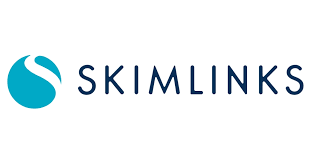
Skimlinks operates in the affiliate marketing niche. They automatically turn suitable product links on your site into affiliate links. You earn a commission when someone clicks and makes a purchase. No guaranteed RPMs or CPMs with Skimlinks, as earnings depend on your content’s promotional nature and visitor behavior. They take a 25% cut of the affiliate commission you earn.
For those utilizing Skimlinks, there are added financial perks through the VIP and Preferred Partner Program which allow publishers to keep a significant portion of their earnings—up to 75% commission. With its efficient integration of affiliate links, Skimlinks is particularly well-suited for affiliate marketers looking to optimize their workflows.
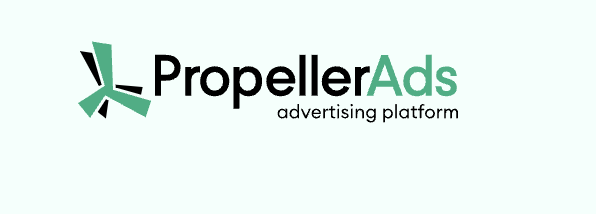
PropellerAds specializes in various ad formats, including pop-unders, push notifications, and native ads. These formats can be higher-paying, but could also be more intrusive to users. CPMs on PropellerAds can range from $0.50 to $5 on average, depending on ad type and traffic quality.
The accessibility offered by PropellerAds is noteworthy. Publishers can easily monetize their content thanks to the low minimum payout limit which is set at $5 through PayPal. There’s no requirement for minimal site traffic to start earning ad revenues, making it especially beneficial for new or small-scale publishers looking to get started with online advertising.
They are a viable option for those who are unable to qualify for higher-tier ad networks and may consider more intrusive ad formats.

RevContent emerges as a compelling alternative to AdSense particularly for its approach to native advertising. This platform is known for seamlessly integrating ads into websites through its unique ad widgets, enhancing the user experience while still driving revenue.
In terms of revenue potential, RevContent offers a unique advantage over AdSense, particularly in the context of ad blockers. RevContent’s native ads can monetize web traffic even when users employ ad blockers, a feature not typically found in AdSense ads. This makes RevContent an attractive choice for publishers concerned about losing revenue due to ad-blocking software.
It should be recognized that Revcontent maintains strict partnership criteria, insisting on publishers achieving no less than 50,000 unique monthly views. This exclusivity underscores Revcontent’s dedication to upholding superior quality in both content and advertisements it delivers.
While AdSense focuses on aggregating and selling ad inventory on behalf of publishers, ad exchanges facilitate direct ad space transactions between publishers and advertisers, and header bidding partners enhance competition by connecting publishers to multiple ad exchanges for optimal revenue generation. Bundling and selling of ad space is done by AdSense, making it a more streamlined process for publishers looking to monetize their websites.
Ad exchanges like Google AdX facilitate direct interactions between publishers and advertisers through real-time ad auctions. In this setup, the ad space is auctioned off to the highest bidder. Ad exchanges are usually integrated with supply-side platforms (SSPs), enabling a seamless flow of ad inventory between publishers and advertisers.
Header bidding partners like MonetizeMore connect publishers to multiple ad exchanges simultaneously. This maximizes competition between advertisers, potentially leading to higher revenue for the publisher. This setup lets publishers make more money by leveraging the strengths of multiple SSPs. For instance, specialized SSPs may offer higher cost-per-mille (CPM) rates in specific verticals, while others provide broader access to a diverse range of advertisers in open marketplaces.
Choosing the right AdSense alternative is paramount for publishers looking to maximize their online revenue. While Google AdSense is a popular choice, it may not always be the best fit for every publisher’s unique needs. Several factors make looking for a Google AdSense alternative worthwhile:
The following table contrasts key scenarios where publishers should consider AdSense alternatives versus situations where sticking with AdSense is advantageous.
| Situation | Look for AdSense Alternatives | Stick with AdSense |
|---|---|---|
| Revenue Goals | If your revenue plateaus or decreases with AdSense and you’re looking for higher earnings. | If you’re satisfied with the earnings from AdSense and it meets your revenue goals. |
| Ad Customization | If you want more control over ad types, formats, and placement to better fit your site’s design and audience. | If you’re comfortable with the standard formats and level of control AdSense offers. |
| Traffic Source | If a significant portion of your traffic comes from regions or demographics not well-served by AdSense. | If your audience aligns well with AdSense’s advertiser base, typically traffic from North America and Western Europe. |
| Site Content | If your content niche or type doesn’t align with AdSense policies or is in a specialized field with specific advertisers. | If your content is broad appeal and fits comfortably within AdSense’s content policies. |
| Ad Network Management | If you have the resources and expertise to manage and experiment with different ad networks and want to actively optimize your ad strategy. | If you prefer a more hands-off approach and value the ease and simplicity of AdSense’s management. |
| Risk Tolerance | If you’re willing to experiment and take risks for potentially higher rewards with other ad networks. | If you prefer the reliability and low risk associated with AdSense. |
| Technical Support | If you require more personalized technical support and direct communication with the ad network. | If you’re okay with self-service support and the level of assistance provided by AdSense. |
Choosing the best Adsense alternative for your website hinges on assessing each option in light of your specific requirements and situation. Variety is beneficial, yet it’s paramount to meticulously compare every platform, considering what you uniquely need.
When selecting an alternative to Adsense, one must take into account a multitude of considerations such as:
The integration compatibility between your website’s platform for content management or blogging and the ad network is critical to ensure seamless functionality.
Essential aspects when assessing different ad networks include:
Consider these important factors to make a well-informed choice regarding an AdSense alternative.
Once you’ve narrowed down your choices based on the abovementioned factors, the next step is to test different ad networks to determine which generates the most passive income without disrupting the user experience. Conducting A/B tests can be valuable for comparing the performance of different ad networks in terms of revenue, while split testing helps determine their impact on bounce rate and time on site.
Ensure that ads from any ad network do not disrupt your website design or navigation and are compatible across all major web browsers. Taking into account user feedback for making informed decisions can also be beneficial. Analyzing various ad placements and formats from different networks helps find the optimal combination, while monitoring revenue trends over time is essential for identifying sustainable income growth.
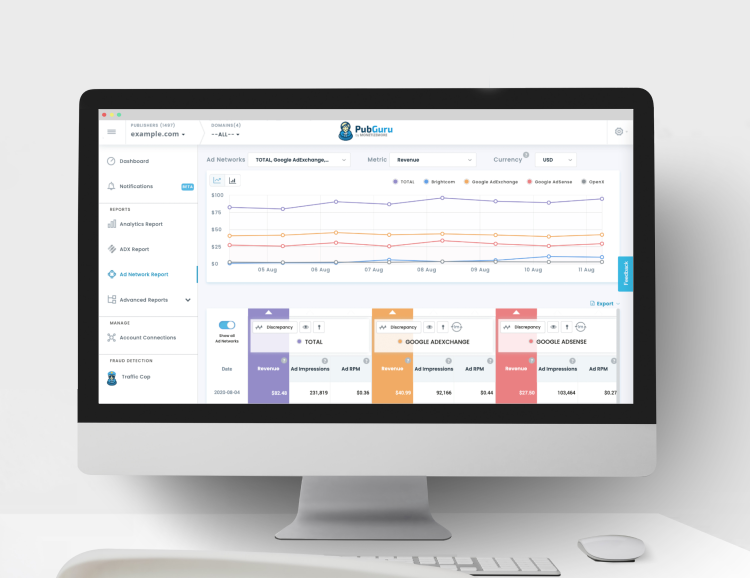
For publishers seeking the highest-paying AdSense alternative, MonetizeMore stands out as the optimal choice. With its focus on high-revenue publishers, advanced ad management services, direct advertiser negotiations, and invalid traffic blocking solutions, MonetizeMore is uniquely positioned to significantly boost ad earnings for publishers globally.
They’ve been catering exclusively to publishers who already generate over $1000 per month in ad revenue. This selective approach has paid off, with the company disbursing over $100 million to its publishers, a testament to its effectiveness and reliability. As a leading AdTech partner, MonetizeMore has proven its capability to maximize ad earnings far beyond what traditional platforms offer.
What sets MonetizeMore apart is its comprehensive management of publishers’ ad servers. This service includes optimizing ad placements for maximum visibility and engagement, implementing robust price controls, and eliminating the need for middlemen. By working directly with advertisers, MonetizeMore ensures that its publishers get the best possible deals, leading to a significant increase in earnings compared to AdSense.

The selection of ad formats is key to maximizing your advertising revenue. Alternative ad networks offer a variety of such formats, including native ads, push notifications, and interstitials—offering a broader range than the typical offerings from AdSense. When these varied ad formats are custom-tailored to complement your site’s content and aesthetics, they can significantly boost user engagement.
Certain alternative ad networks may even focus on specific types of advertisements, like video or mobile ads, which might yield more profit if they correspond well with your website’s content. These networks often allow for enhanced personalization options that enable advertisers to craft interactive and visually attractive advertisements in tune with the stylistic elements and structure of your webpage. Leveraging this sophisticated advertisement technology not only enhances the overall user experience but also could lead to longer visit durations on your page as well as lower rates at which visitors leave abruptly (bounce).
Control over ad placements is a significant factor in the quest for Adsense alternatives. More control ensures brand safety, prevents ads from displaying alongside inappropriate content, and provides better targeting capabilities that directly enhance campaign performance. Managing your AdSense account effectively can help you achieve these goals.
This control isn’t just about where the ads are placed and how they impact your website. It’s essential to monitor the effect of alternative ad placements on your website’s speed and user engagement and to test the network’s compatibility with your website’s theme across different devices. Achieving the right balance helps to optimize ad revenue while maintaining a seamless user experience.
Be sure to check out our AdSense course here.
Exploring Adsense alternatives can open up new avenues for boosting ad revenue, enhancing user experience, and diversifying income sources. The top Adsense alternatives we’ve discussed offer a range of ad formats, targeting options, and pricing structures, providing unique benefits to suit different needs and objectives. However, choosing the best Adsense alternative for your website involves careful evaluation of various factors and testing different options. By doing so, you can optimize your ad revenue and create a more engaging user experience.
All this takes much time, and there are lots of room for error. Why not put your ad optimization in the hands of experts? Let MonetizeMore advise you on ad networks, optimize your ads, and help you maximize your ad revenue.
Sign up for a Premium account at MonetizeMore today!
The highest paying AdSense alternative is MonetizeMore in 2025. They help publishers earn an average of 50-300% more than they would with AdSense. With their PubGuru header bidding technology, MonetizeMore lets 2500+ publishers to connect with 50+ advertising partners, not limited to Google, which in turn boosts competition and ad revenue. To dive deeper into the world of high-paying ad networks in 2025, considering strategies like AI header bidding and Google Ad Exchange could potentially optimize your revenue streams.
The best alternative to AdSense is AI powered header bidding with MonetizeMore. Significantly increase your ad revenue by over 50% with MonetizeMore. Unlike AdSense, which limits publishers to Google as the advertising provider, MonetizeMore allows access to an unlimited number of ad networks such as Google, Amazon, and Microsoft Ads. This broader pool of advertising partners increases competition for ad inventory on your website, leading to higher bids from advertisers and ultimately 10X-ing your revenue. MonetizeMore also offers advanced ad tech features that are not available through AdSense like IVT blocking, along with a custom ad optimization strategy built by AdOps experts.
A well-placed video ad through Connatix can yield CPMs ranging from $9 to $20, which is notably higher than what AdSense typically offers for display ads. Therefore, it can be inferred that using Connatix for video ads may result in higher revenue compared to using AdSense for display ads, but the actual income and success of the ad setup would still depend on various factors like geographic location, market dynamics, and target audience.
BuySellAds is typically more lucrative for larger publishers due to the potential for higher earnings. AdSense, on the other hand, is often recommended for beginners who may not have an established audience or the resources to negotiate deals with BuySellAds. To determine which platform offers better payout for you, consider factors such as click-through rate (CTR) versus cost per mille (CPM), the geographical locations of your audience, and any additional requirements or restrictions imposed by each advertising network.
RevContent offers a unique advantage for publishers looking to monetize their websites, particularly when faced with concerns about ad blockers. By allowing publishers to generate revenue even when users have ad blockers enabled, RevContent stands out as a potential alternative to AdSense ads which are more likely to be blocked by ad blockers. Therefore, if the ability to earn revenue in spite of ad blockers is a priority, publishers may find that RevContent could potentially offer better monetization opportunities compared to AdSense.
Skimlinks and AdSense present different monetization strategies for websites. While the earning potential between the two platforms varies based on the content you feature, Skimlinks generally offers a more favorable commission structure than AdSense. With Skimlinks taking a lower commission rate of 25% compared to AdSense’s 32%, publishers stand to receive a higher portion of the earnings when users click on affiliated links. This means that in terms of commission rates, Skimlinks tends to pay out more to publishers than AdSense.
Yes, PropellerAds generally pays more than AdSense due to the aggressive nature of their popup and push ads, which lead to higher viewability and click-through rates. This increased engagement results in PropellerAds generating more revenue compared to AdSense. However, it is important to note that while PropellerAds may offer higher earnings, the quality of ads displayed through their platform may not be as high as those seen on AdSense due to differences in product policy standards.
Media.net and AdSense have different strengths when it comes to ad performance. AdSense tends to excel with banners above the fold, while Media.net typically performs better within content or on sticky side-bars. In product-light niches, AdSense generally performs well, whereas Media.net shines in product-heavy niches. Ultimately, the effectiveness of each platform in terms of pay could vary depending on factors such as ad placement and niche specificity.
MonetizeMore always pays more than AdSense for most publishers when running display ads. The average earnings for publishers working with MonetizeMore are reportedly 50-300% higher than when using AdSense. Moreover, publishers who use MonetizeMore’s PubGuru Header Bidding have the potential to earn significantly more, up to 10 times the amount they earned with AdSense. However, there are certain scenarios where AdSense might be a better option, such as if a site receives more traffic from Tier 3 GEOs or has a CTR higher than 2%. It is also mentioned that some publishers opt to use both MonetizeMore and AdSense, strategically selecting ad units for each platform.
MonetizeMore can collaborate with publishers across various verticals to enhance ad revenue and improve user experience. Whether it's in the technology, education, music, travel, forum, gaming, or reference-style websites such as dictionaries and weather reporting, MonetizeMore offers a tailored approach to ad monetization that can effectively benefit publishers in any industry sector.
Yes, you can run other ads with AdSense.
You are not allowed to have more than one AdSense account. You can, however, have one AdSense account as an individual and another as a business. Find out all the details here: https://support.google.com/adsense/answer/9729?hl=en
Yes, on most free website platforms, you are allowed to place the AdSense code and monetize your blog. Be sure to check with your free website provider whether you are allowed to monetize your blog with AdSense or not. Remember, AdSense is free to join. You can monetize your blog with AdSense ads as long as it meets the requirements and does not violate policies.
Revenue per 1000 AdSense views vary between publishers but generally range between $0.05 - $150. Ad RPM is contingent on ads per page, CTR, traffic quality, vertical, user demographics and several other factors.

With over ten years at the forefront of programmatic advertising, Aleesha Jacob is a renowned Ad-Tech expert, blending innovative strategies with cutting-edge technology. Her insights have reshaped programmatic advertising, leading to groundbreaking campaigns and 10X ROI increases for publishers and global brands. She believes in setting new standards in dynamic ad targeting and optimization.
10X your ad revenue with our award-winning solutions.